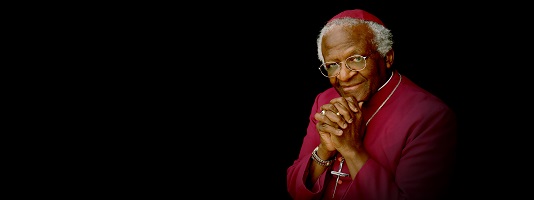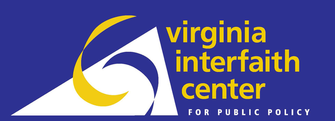
by Dora Muhammad, VICPP Congregation Engagement Director
The many hours I spent poring through the seven-volume report of South Africa’s Truth and Reconciliation Commission drew me close to the mind and heart of its chair, Archbishop Desmond Tutu. I was an emerging journalist during my grad studies of international law and human rights at the University of London in 2003, the year that the final two volumes of the Commission’s report were released. The Archbishop’s work was a core case study. He called it an “incubation chamber for national healing, reconciliation and forgiveness.”
Between 1996 and 1998, he led his countrymen through public, televised hearings with survivors and perpetrators who contributed their stories to the “full disclosure” of the atrocities and crimes against humanity of the brutal right-wing apartheid regime that had ruled for more than 300 years. “However painful the experience, the wounds of the past must not be allowed to fester. They must be opened. They must be cleansed. And balm must be poured on them so they can heal,” he said. This was my introduction to the concept and practice of restorative justice.
Some people stumble over the use of the word “reconciliation” because they center their perspective from a lens of interpersonal relationships. However, in South Africa, the term had a broader meaning—its application of reconciling balances in accounting. This perspective created space for several of the practical recommendations of the commission—though not adopted by the South African government—such as a one-time wealth tax to balance the wealth gap between the rich and poor which the apartheid system held up.
While there were many previous truth commissions in countries grappling with post-war rebuilding or investigating mass disappearances of political opposition, the South African model was the first that applied the human rights framework to racial violence. Other iterations of this model would be used in Canada for the genocide of indigenous peoples, the State of Maine for its Indian Child Welfare Act abuses, and in Greensboro, N.C. for the 1979 massacre of peaceful protestors of the KKK.
I recently visited Greensboro and was graced with a personal tour of the Beloved Community Center, which was established and managed by Rev. Nelson and Joyce Johnson. Rev. Johnson, who organized the 1979 protest march, survived the gunfire from the KKK and Nazis that killed five protesters. Through the Beloved Community Center, the couple has led the work of the Truth and Reconciliation Commission in the city and are now working on extending that work throughout the state. We have invited Rev. Johnson to deliver special remarks at the closing plenary of Days for All People (DFAP) and we hope he will be able to join us.
Beyond January’s advocacy week, we look forward to collaborating with him as we work toward truth and reconciliation in Virginia, where the roots of white supremacy in this country were planted and cultivated. The vision for the work of truth and reconciliation was shared by several VICPP board members during our listening sessions held after George Floyd’s murder last year and became one of the five parts of the framework for our racial equity program.
One of the program’s focus areas delves into the role of the church and Christian denominations in the boarding school system that kidnapped and abused Native children. We support the passing of The Truth and Healing Commission on Indian Boarding School Policies in the United States Act. The federal bill, originally introduced last year by then-Congresswoman Deb Haaland, was reintroduced this year as a bipartisan bill by U.S. Senator Elizabeth Warren, along with Congressional Native American Caucus Co-Chairs Congresswoman Sharice Davids and Congressman Tom Cole.
Did you know that Congress issued an apology to Native American people? It is buried on page 45 of the 2010 Defense Department Appropriations Act and does not mention any specific tribe or any specific act—facts that Mark Charles, Navajo activist and co-author of “Unsettling Truths: The Ongoing, Dehumanizing Legacy of the Doctrine of Discovery” points out in his work. He will keynote our DFAP plenary on racial and health equity on Tuesday, January 18.
Archbishop Desmond Tutu’s devotion to navigate a journey through truth to racial equity for his country remains a light for the world. Looking to his work as a beacon began during my grad studies of international law and human rights and continues in my work today as I spearhead VICPP’s racial equity program. I hope you will get involved in 2022, for we will honor the Archbishop’s legacy with the work that we do. It is my prayer that we endeavor toward racial equity with the same fervor and visibility of opening the time capsules that were unearthed beneath the foundation of the Robert E. Lee monument in Richmond, the symbolic depth of which is profoundly applicable to the practical work of truth and racial equity.
